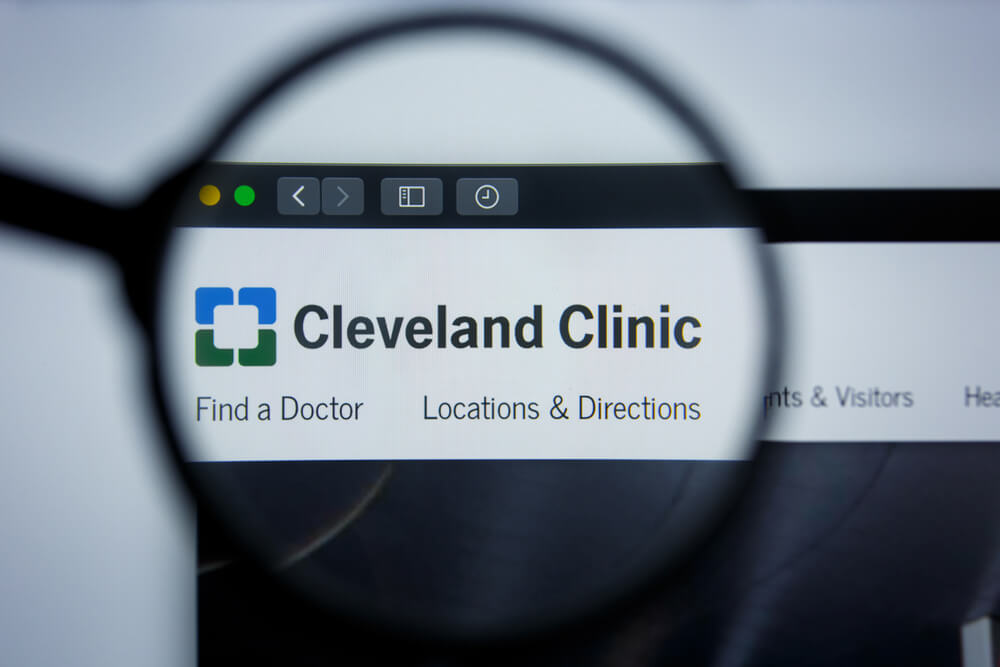



Get new exclusive access to healthcare business reports & breaking news




Cleveland Clinic, a non-profit academic medical center, and GYANT, a patient connection and relationship management company, announced January 28th a collaboration to enhance post-discharge communication between patient and caregiver.
As part of the collaboration, GYANT and Cleveland Clinic are digitally transforming the post-discharge process.
Combining Cleveland Clinic’s care management processes with GYANT’s AI-driven patient engagement platform has fueled a 39 percent increase in the hospital’s patient contact rate. GYANT’s platform. This, joined with live clinical engagement, helps patients and their providers stay in contact thus offering a more efficient patient and caregiver experience.
In this way, more patients receive the support and resources they need following a hospital stay but upgrade them to interact with a Cleveland Clinic caregiver should they require additional assistance. Staying in touch and receiving the right kind of support at the right time saves lives in more ways than one. Technology and the ability to evaluate patients remotely have evolved making intervention possible in many situations that would otherwise have remained unattended. For instance, experts say a proposed 3-digit suicide hotline could reduce stigma surrounding mental health and help save lives. Pending federal legalization, the intention is to establish the number 988 as the number for the National Suicide Prevention Lifeline, which is currently 800-273-8255.
There are numerous ways AI can be used to improve the healthcare system.
Neri Lavi, who serves as Managing Director in the United States for Qualitest, the largest quality engineering company in the world, talks in a podcast about the three groups in healthcare that can benefit from artificial intelligence-enhanced testing. He explains how AI can help with QA testing and takes listeners through relevant examples before giving his thoughts on data breaches in the medical industry.
AI is increasingly used in healthcare, whether for programs managing administrative tasks, developing new drugs or for apps able to help patients manage various conditions. Tueo Health, for instance, was developing an app to help manage asthma symptoms in children. The app was connected with commercial breathing sensors and was supposed to send alerts to parents if a child’s breathing changed during naps or throughout the night. The company drew Apple’s attention, which bought it in late 2018. Apple is only known to have made two other health-care acquisitions, buying a third one was a clear indication of the company’s intent to invest in healthcare. After the 2016 purchase of Gliimpse, a start-up developing technology to aggregate medical records, Apple bought Beddit, which produces sleep sensors, a year later.
As part of the expanded partnership, GYANT’s platform is now actively used in 10 hospitals, connecting with hundreds of patients every month. Cleveland Clinic was expected to implement a solution within the Women’s Health Institute to support new mothers in the period immediately after giving birth.
Cleveland Clinic first started working with GYANT to virtualize patient outreach in 2018 to complement its existing post-discharge call program. This collaboration is not the first of its kind for Cleveland Clinic. Last year, the center partnered with American Well® on a first-of-its-kind initiative to provide broad access to comprehensive and high-acuity care services via telehealth. Together, the organizations will form a Cleveland-based joint venture company, named The Clinic™, which will offer virtual care from Cleveland Clinic’s highly specialized experts through American Well’s well-established digital health technology platform.
“Health systems are under tremendous pressure today to provide ever-more convenient access to care for patients while tightly managing operational costs,” said Pascal Zuta, CEO and co-founder of GYANT. “We’re proud to help accomplish both of these goals and look forward to connecting patients digitally with their care teams throughout the patient journey.”
GYANT is not working only with Cleveland Clinic. In January, GYANT started a partnership with Zipnosis, a Minneapolis, Minnesota-based healthcare technology company.
The collaboration has resulted in a software solution known as the Zipnosis + GYANT Digital Front Door. Its purpose is to help healthcare providers improve the overall patient experience using AI and personalized care. The main software components are a virtual care platform developed by Zipnosis and a chat-based capability provided by GYANT.
GYANT, the patient connection, and relationship management company, drive more meaningful patient-doctor engagements while improving care utilization and pathways. Leveraging its customizable, artificial intelligence-enabled platform, which integrates with any EHR system, GYANT creates easy to navigate and enjoyable experiences for patients that equate to cost and time savings, and improved patient conversion rates for health systems. GYANT’s unique combination of deep intelligence, physician oversight, and a human-driven, empathetic approach allows health systems to solve traditional complex care issues, ensuring that patients receive the right care – anytime and anywhere, increasing engagement, trust, and loyalty along their entire healthcare journey.




Necessary cookies are absolutely essential for the website to function properly. This category only includes cookies that ensures basic functionalities and security features of the website. These cookies do not store any personal information.
Any cookies that may not be particularly necessary for the website to function and is used specifically to collect user personal data via analytics, ads, other embedded contents are termed as non-necessary cookies. It is mandatory to procure user consent prior to running these cookies on your website.


Join 50,000 healthcare professionals and get our weekly newsletter delivered to your inbox. Breaking industry news, startup innovation alerts & emerging HealthTech News. Be in the know!
Your work email here


